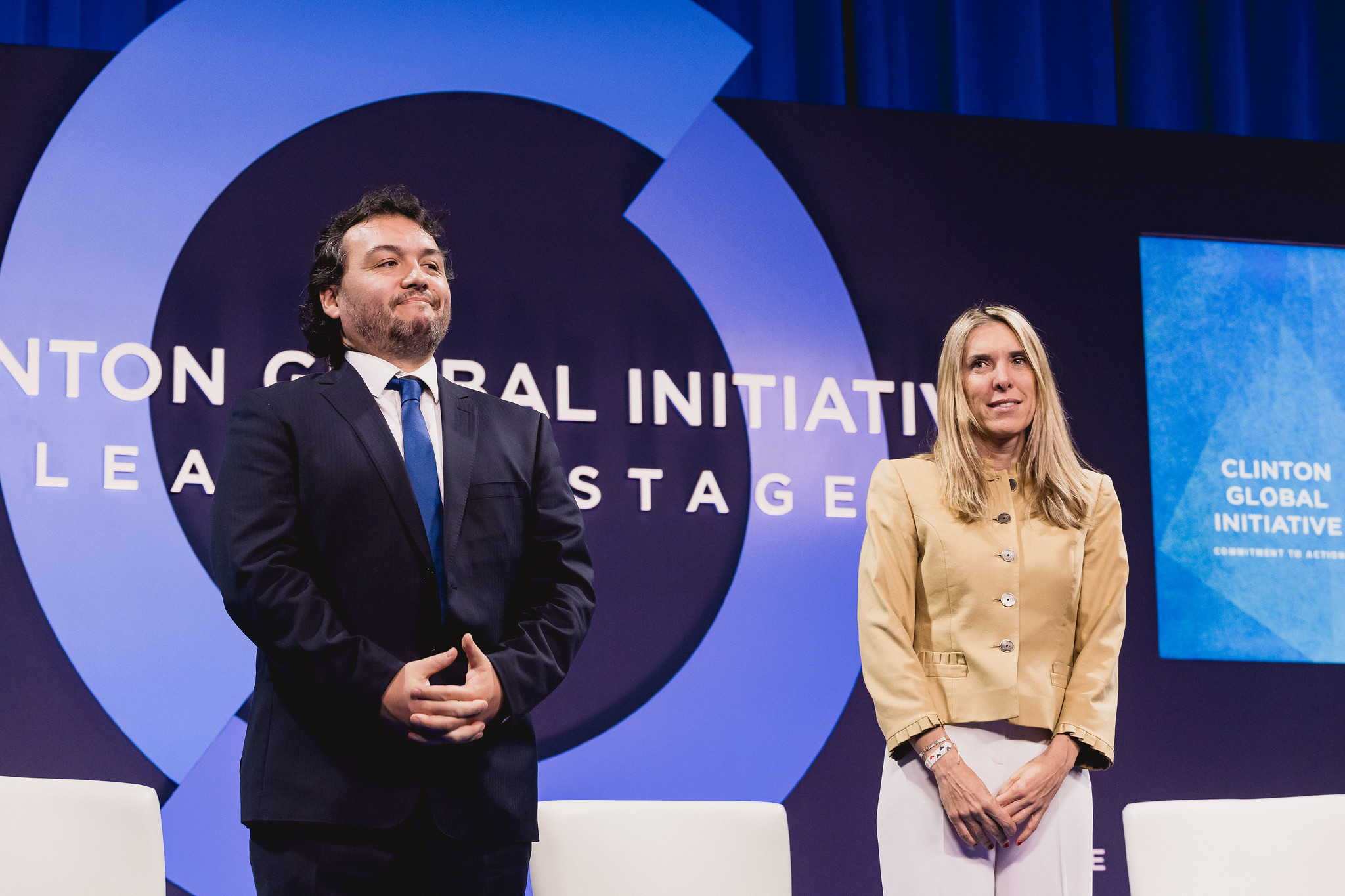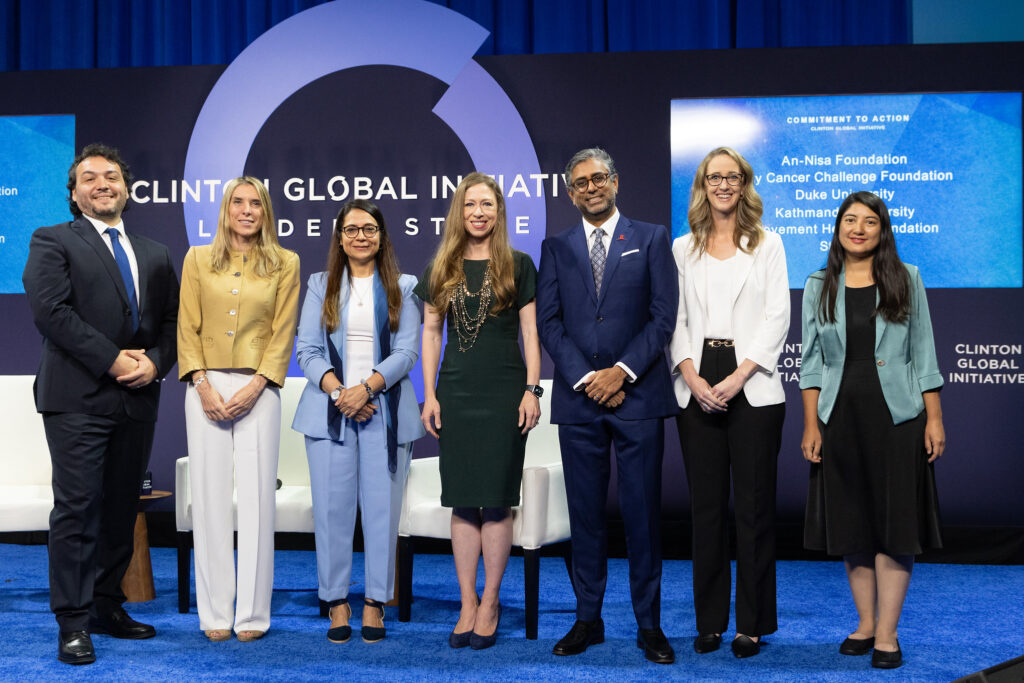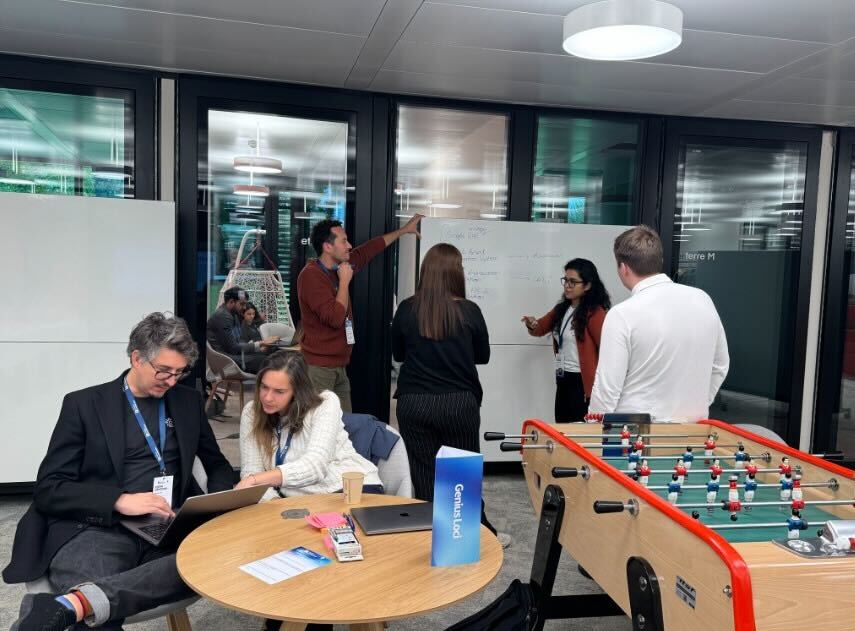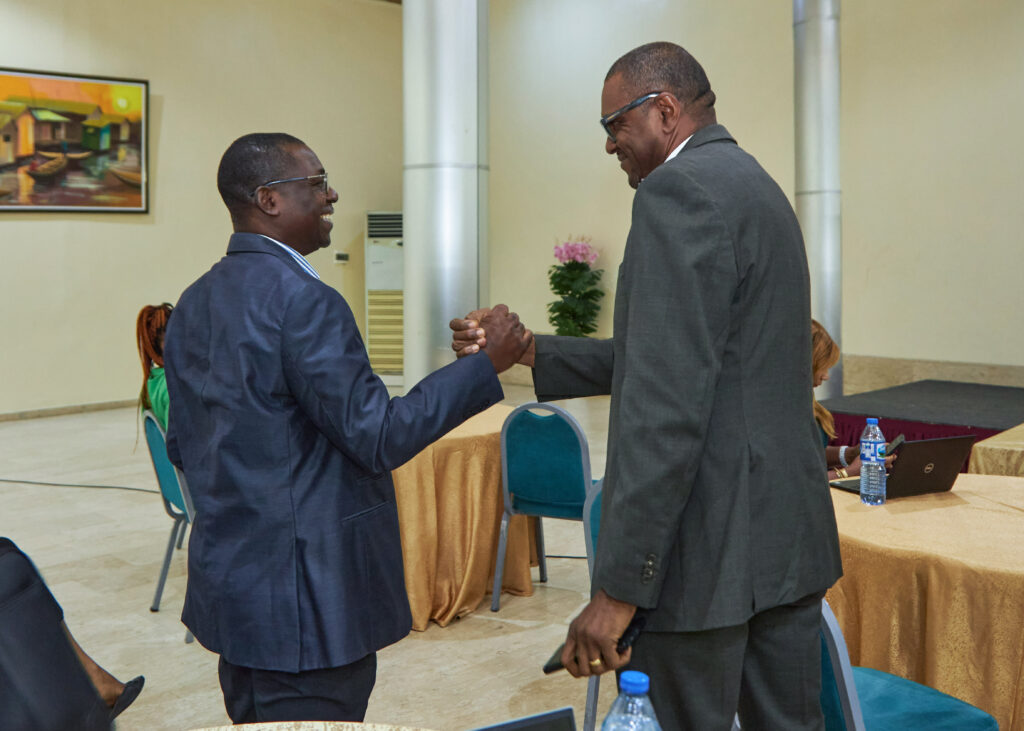
New York, NY, 24 September 2024 – City Cancer Challenge Foundation (C/Can), an international non-profit organisation dedicated to transforming cancer care in resource-limited settings, announced a new seven-year (2024-2030), $10 million initiative Cities Taking Action for Gender Equity in Cancer Care to help address the widening care gap among women in low- and middle-income countries (LMICs). The ambitious initiative, announced at the Clinton Global Initiative (CGI) 2024 Annual Meeting during the 79th United Nations General Assembly week was developed in response to the findings and recommendations of the landmark Women, power and, cancer: A Lancet Commission and aims to integrate a gender-responsive health systems approach into its model in 15 cities in Africa, Asia, Europe and Latin America.

C/Can is helping create a world where every individual has equitable access to essential cancer care because neither where a person lives, nor their gender, should impact the quality of the care they receive,
said Isabel Mestres, CEO, C/Can.
We’re proud to launch this ambitious seven-year initiative with foundational support from key partners and call on others to join us in shaping the future of cancer care through innovative, locally driven interventions.
Cancer is the world’s second leading cause of death, claiming nearly 10 million lives every year; no demographic faces a higher disease and financial burden from cancer than women living in LMICs. Stemming from the recommendations of the Women, power, and cancer: A Lancet Commission, C/Can convened a working group of women across its network of cities, which further elevated access to cancer care; challenges experienced by the workforce; and system-level barriers as unique challenges faced by women in LMICs to be addressed.
As a result, C/Can’s new strategy will leverage its proven model of the city engagement process to shape interventions around the specific needs of local populations, creating scalable solutions that can later be adapted for the regional and national levels. This localised approach will ensure that the unique challenges of each community are met with tailor-made solutions, empowering local leaders to own and drive change and leading to better outcomes and more sustainable improvements in cancer care.
Cancer has been a long-overlooked priority in women’s health, reinforced by structural power imbalances in almost every country,
said Ophira Ginsburg, MD, MSc, Senior Scientific Advisor for Clinical Research, Center for Global Health, National Cancer Institute, and co-chair of the Lancet Commission on Women, Power, and Cancer.
It is important that the global community take steps toward advancing new intersectional approaches to cancer care and engage leaders from within the communities most impacted to drive change within and beyond the healthcare system.
The initiative will be initially implemented in three cities: León, Mexico; Nairobi, Kenya; and Tbilisi, Georgia, where cancer care access gaps for women have been identified and an estimated 3.8 million women are living. A blueprint, co-created with local stakeholders alongside experts that include researchers from Women, power and cancer: A Lancet Commission, will tailor gender-responsive solutions to each city’s context to ensure sustainability and its scale-up nationally. The knowledge and evidence on relevant solutions will be captured and shared with other cities and countries facing similar challenges within the C/Can network and beyond, with the potential to reach all 1.7 billion women living in LMICs.
The $10 million commitment was made possible by generous funding from foundational partners Amgen, Global Focus on Cancer (supported by Eli Lilly and Company), MSD, Roche, Siemens Healthineers, in addition to support from implementation partners including healthcare ministries within local governments. C/Can is calling on additional stakeholders to join its partnership across 15 cities through sharing of financial resources, in-kind support and technical and local expertise to secure gender equitable cancer care through innovative, locally driven interventions.





